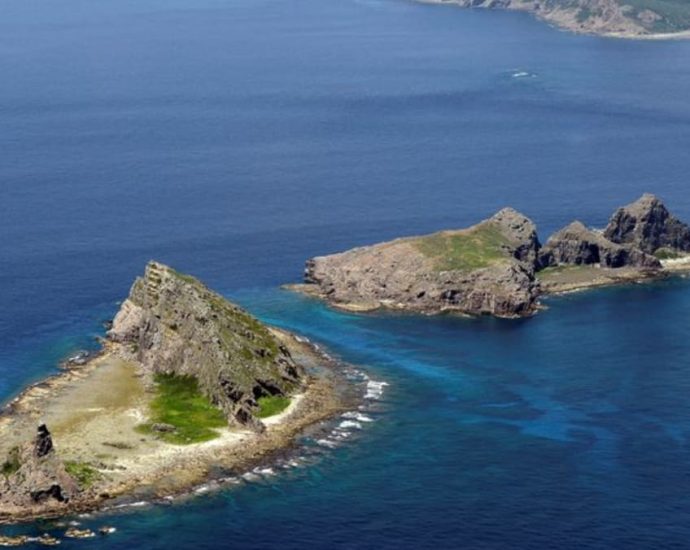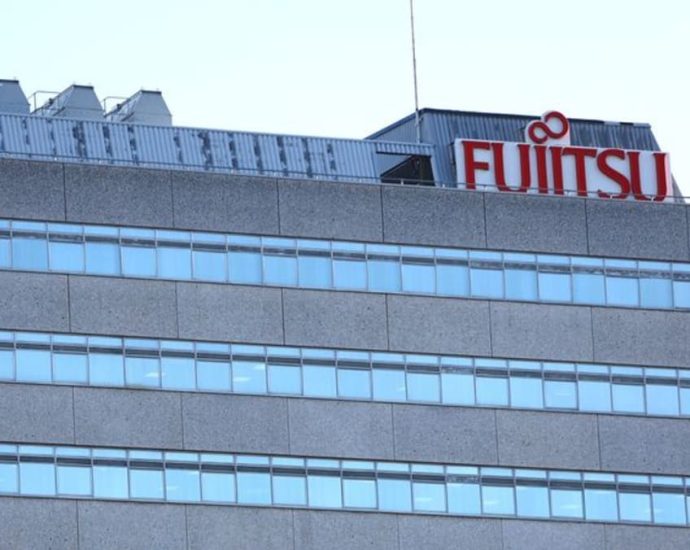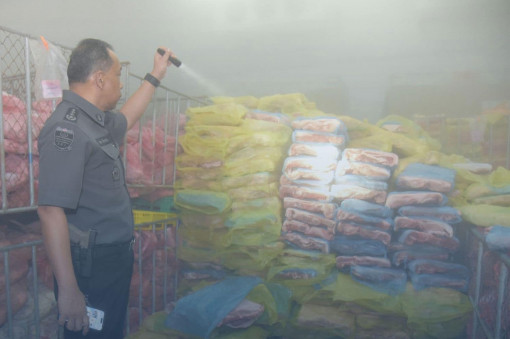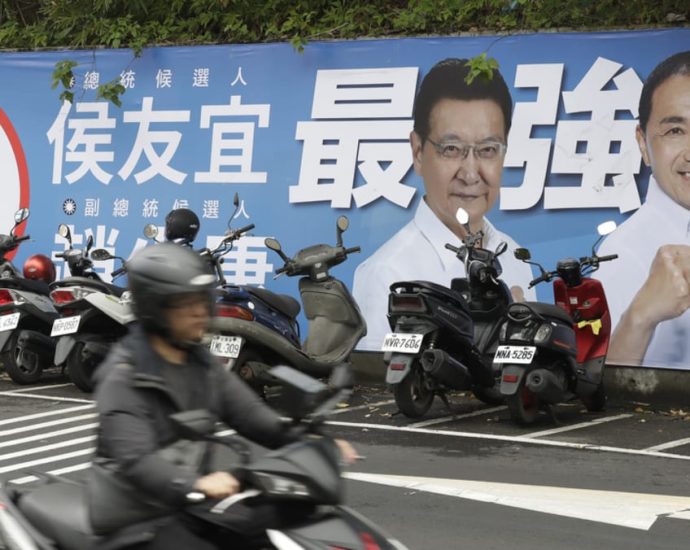Penang’s startup ecosystem receives recognition with Georgetown as 8th ranked city in Southeast AsiaÂ
Georgetown is 2nd highest-ranked city in Malaysia with KL at 4th spot
Supporting startup ecosystem part of plan to attract high-tech industries
In a statement, Digital Penang marked a significant milestone for Penang’s technology startup ecosystem as it received the “Outstanding Ecosystem among Medium-Sized Population Cities in Southeast Asia 2023” award from StartupBlink, a leading startup…Continue Reading
CNA Explains: Why some Singapore commuters are upset about transitioning to SimplyGo

SINGAPORE: The Land Transport Authority’s (LTA) announcement that bus and train payment cards must be upgraded has roused online discussions about whether such a move was necessary.
What’s going to change, and why?
From Jun 1, adult EZ-Link cards and NETS FlashPay cards can no longer be used on buses and trains, LTA announced on Tuesday (Jan 9).
Commuters who are using these payment methods will have to upgrade their cards to SimplyGo EZ-Link cards or exchange them for NETS Prepaid Cards.
Concession card users will not be affected. Those who are using contactless bank cards and mobile wallets on phones or smartwatches are already on the SimplyGo platform, which was introduced in 2019, and also will not be affected.
Around two-thirds of adult public transport fares are currently paid through SimplyGo EZ-Link cards or bank cards.
“With the growing adoption of SimplyGo payment methods, and the legacy card-based ticketing system for adult commuters nearing the end of its operational lifespan, we are therefore transitioning all adult commuters to the SimplyGo platform,” said LTA.
The authority also highlighted the benefits of SimplyGo, such as topping up multiple EZ-Link cards using its mobile app; blocking transactions if a card is misplaced; and receiving notifications on fares and card balances.
Last March, the LTA announced that the EZ-Link and TransitLink SimplyGo mobile apps would be merged into a single platform. At the time, the authority said there would be no change to how commuters paid their fares. There was also no indication that older EZ-Link cards would be phased out.
China coast guard enters disputed waters in the East China Sea
BEIJING/TOKYO: The Chinese coast guard said it patrolled the territorial waters of the Diaoyu Islands on Thursday (Jan 11) to conduct “right protection” cruises. The East China Sea islets are claimed by both China and Japan, which calls them the Senkaku Islands, and have long been a sticking point inContinue Reading
NY Times vs OpenAI could short-circuit the chatbot revolution
In 1954, the Guardian’s science correspondent reported on “electronic brains”, which had a form of memory that could let them retrieve information, like airline seat allocations, in a matter of seconds.
Nowadays the idea of computers storing information is so commonplace that we don’t even think about what words like “memory” really mean. Back in the 1950s, however, this language was new to most people, and the idea of an “electronic brain” was heavy with possibility.
In 2024, your microwave has more computing power than anything that was called a brain in the 1950s, but the world of artificial intelligence is posing fresh challenges for language – and lawyers.
Last month, the New York Times newspaper filed a lawsuit against OpenAI and Microsoft, the owners of popular AI-based text-generation tool ChatGPT, over their alleged use of the Times’ articles in the data they use to train (improve) and test their systems.
They claim that OpenAI has infringed copyright by using their journalism as part of the process of creating ChatGPT. In doing so, the lawsuit claims, they have created a competing product that threatens their business.
OpenAI’s response so far has been very cautious, but a key tenet outlined in a statement released by the company is that their use of online data falls under the principle known as “fair use.” This is because, OpenAI argues, they transform the work into something new in the process – the text generated by ChatGPT.
At the crux of this issue is the question of data use. What data do companies like OpenAI have a right to use, and what do concepts like “transform” really mean in these contexts? Questions like this, surrounding the data we train AI systems, or models, like ChatGPT on, remain a fierce academic battleground. The law often lags behind the behavior of industry.
If you’ve used AI to answer emails or summarise work for you, you might see ChatGPT as an end justifying the means. However, it perhaps should worry us if the only way to achieve that is by exempting specific corporate entities from laws that apply to everyone else.
Not only could that change the nature of debate around copyright lawsuits like this one, but it has the potential to change the way societies structure their legal system.
Fundamental questions
Cases like this can throw up thorny questions about the future of legal systems, but they can also question the future of AI models themselves. The New York Times believes that ChatGPT threatens the long-term existence of the newspaper.
On this point, OpenAI says in its statement that it is collaborating with news organizations to provide novel opportunities in journalism. It says the company’s goals are to “support a healthy news ecosystem” and to “be a good partner.”
Even if we believe that AI systems are a necessary part of the future for our society, it seems like a bad idea to destroy the sources of data that they were originally trained on. This is a concern shared by creative endeavors like the New York Times, authors like George R R Martin, and also the online encyclopedia Wikipedia.
Advocates of large-scale data collection – like that used to power Large Language Models (LLMs), the technology underlying AI chatbots such as ChatGPT – argue that AI systems “transform” the data they train on by “learning” from their datasets and then creating something new.

Effectively, what they mean is that researchers provide data written by people and ask these systems to guess the next words in the sentence, as they would when dealing with a real question from a user.
By hiding and then revealing these answers, researchers can provide a binary “yes” or “no” answer that helps push AI systems towards accurate predictions. It’s for this reason that LLMs need vast reams of written texts.
If we were to copy the articles from the New York Times website and charge people for access, most people would agree this would be “systematic theft on a mass scale” (as the newspaper’s lawsuit puts it). But improving the accuracy of an AI by using data to guide it, as shown above, is more complicated than this.
Firms like OpenAI do not store their training data and so argue that the articles from the New York Times fed into the dataset are not actually being reused. A counter-argument to this defense of AI, though, is that there is evidence that systems such as ChatGPT can “leak” verbatim excerpts from their training data. OpenAI says this is a “rare bug.”
However, it suggests that these systems do store and memorize some of the data they are trained on – unintentionally – and can regurgitate it verbatim when prompted in specific ways. This would bypass any paywalls a for-profit publication may put in place to protect its intellectual property.
Language use
But what is likely to have a longer-term impact on the way we approach legislation in cases such as these is our use of language. Most AI researchers will tell you that the word “learning” is a very weighty and inaccurate word to use to describe what AI is actually doing.
The question must be asked whether the law in its current form is sufficient to protect and support people as society experiences a massive shift into the AI age. Whether something builds on an existing copyrighted piece of work in a manner different from the original is referred to as “transformative use” and is a defense used by OpenAI.
However, these laws were designed to encourage people to remix, recombine and experiment with work already released into the outside world. The same laws were not really designed to protect multi-billion-dollar technology products that work at a speed and scale many orders of magnitude greater than any human writer could aspire to.
The problem with many of the defenses of large-scale data collection and usage is that they rely on strange uses of the English language. We say that AI “learns”, that it “understands”, that it can “think.” However, these are analogies, not precise technical language.
Just like in 1954, when people looked at the modern equivalent of a broken calculator and called it a “brain”, we’re using old language to grapple with completely new concepts. No matter what we call it, systems like ChatGPT do not work like our brains, and AI systems don’t play the same role in society that people play.
Just as we had to develop new words and a new common understanding of technology to make sense of computers in the 1950s, we may need to develop new language and new laws to help protect our society in the 2020s.
Mike Cook is Senior Lecturer, Department of Informatics, King’s College London
This article is republished from The Conversation under a Creative Commons license. Read the original article.
OneFour: Australia police foil plot to kill rap group members
 Getty Images
Getty ImagesAustralian police have charged two men over an alleged plot to kill four members of the rap group OneFour.
The men, named in media reports as Brandon Maseuli and Yousef Rima, are part of an international criminal syndicate that originated in Lebanon.
Police said the group takes on contracts to carry out violent crimes such as murders and kidnappings.
Arrested in Sydney on Thursday, Maseuli, 26, and Rima, 20, have been handed multiple charges.
They include conspiracy to murder, kidnapping, directing a criminal group, and various drug and robbery-related offences.
Authorities have also applied for an arrest warrant for a 22-year-old man who is believed to be offshore.
Police said Maseuli and Rima had conspired to murder “four high-profile men from Sydney’s northwest on behalf of another network”.
Their targets have been identified as four members of the drill rap group OneFour – Jerome “J Emz” Misa, Pio “YP” Misa, Spencer “Spenny” Magalogo and Dahcell “Celly” Ramos. It is unclear why the fifth member, Salec “Lekks” Su’a, was not targeted.
The plot against the OneFour members is believed to have been sparked by a conflict between the rappers and the group that allegedly hired the criminal syndicate’s Sydney cell, the Sydney Morning Herald said, citing police authorities.
Police discovered the alleged plot as part of a broader investigation into the Sydney cell, which Maseuli and Rima are part of. They also allege that it was linked to several kidnappings, including one involving more than 722kg (1,600 pounds) of cocaine.
Both suspects appeared before the Liverpool Local Court on Thursday. They were refused bail.
OneFour, said to be Australia’s first drill rappers, have themselves had several run-ins with Australia police. Their music often includes dark themes and violent lyrics, which police claim can incite violence.
They were forced to cancel a national tour in 2019 after police expressed “safety concerns”.
Related Topics
-
-
28 November 2023

-
-
-
3 July 2020

-
-
-
6 April 2016

-
Kedah chief minister makes hours-long visit to Malaysia anti-graft agency over football association case
PUTRAJAYA: Kedah chief minister Muhammad Sanusi Mohd Nor was at the Malaysian Anti-Corruption Commission (MACC) headquarters on Thursday (Jan 11) for about three hours, where he was believed to be assisting with an investigation over corruption allegations relating to the Kedah Football Association (KFA). Sanusi was seen leaving the MACC headquarters atContinue Reading
Japan’s Fujitsu faces questioning over British Post Office scandal
TOKYO: Japan’s Fujitsu is under growing pressure over its role in a scandal in which hundreds of Post Office workers in Britain were convicted of theft, fraud and false accounting because of glitches in software developed by the company. Amid mounting public anger, Britain is moving to quash convictions andContinue Reading
Politician’s brother wanted for pork smuggling
Warrants out for four suspects as investigators close in on big players in scandal
PUBLISHED : 11 Jan 2024 at 15:15

Arrest warrants have been issued for four people, including a half-brother of a well-known politician, in connection with the smuggling of pork worth billions of baht.
The Criminal Court approved the warrants based on evidence gathered by the Department of Special Investigation (DSI) to support charges of tax evasion, Customs Act violations related to the import of animals and carcasses, money laundering and related offences.
DSI officers on Thursday morning raided five locations in Bangkok, including private shipping firms and cold-storage facilities, to seize crucial evidence, said Pol Maj Gen Nathapol Ditsayatham, head investigator on the case.
A source familiar with the case said the four suspects were Li Sheng Jiao, alias “Hia Kao” (Brother Kao) and three other associates: Yang Ya Sung, Mr Li’s son Karin Piyapornpaiboon, and Nawaporn Chaowai, who was in charge of accounting for Mr Li.
Mr Li is said to be the half-brother of a well-known politician and chairman of a trade association. That person’s name was not disclosed.
Earlier, the DSI had interrogated four key witnesses involved in the smuggling of more than 10,000 shipping containers of pork worth about 6-7 billion baht.
Investigators armed with warrants searched a company and residence of Mr Li on Somdet Prachao Taksin Road in Thon Buri district on Thursday morning, said Pol Capt Charnnarong Thapsarn, deputy director of the DSI special operations division.
Mr Li’s wife let the investigators in to search the premises. Documents and other crucial evidence found in the house were being examined, said Pol Capt Charnnarong.
A source said Mr Li left Thailand on Dec 30.
Among the items found during the search were photos of Mr Li with senior civil servants from many agencies, high-ranking police, politicians and former cabinet ministers.
One photograph shows him receiving a plaque of honour from Metropolitan Police Division 9 for helping pay for renovations to a multi-purpose meeting room at the division in September 2021.
Large-scale smuggling of pork has caused prices to collapse in the domestic market, hurting the incomes of pig farmers across the country.
A local shortage that began in 2022 after an outbreak of African swine fever prompted some companies to illegally import pork to cash in on high demand.
The seizure of 161 shipping containers holding 4,025 tonnes of pork at Laem Chabang Port in mid-2023 showed the huge scale of the operation and led to the DSI investigation.
Ministry of Agriculture officials believe the illegal shipments originated from supermarkets in Brazil and some countries in Europe, where regulations require frozen meat to be destroyed after a year in storage.
Instead of being destroyed, the “expired” pork was shipped to be sold in developing countries, including Thailand.
Taiwan Votes 2024: Cross-strait relations at the forefront of election issues
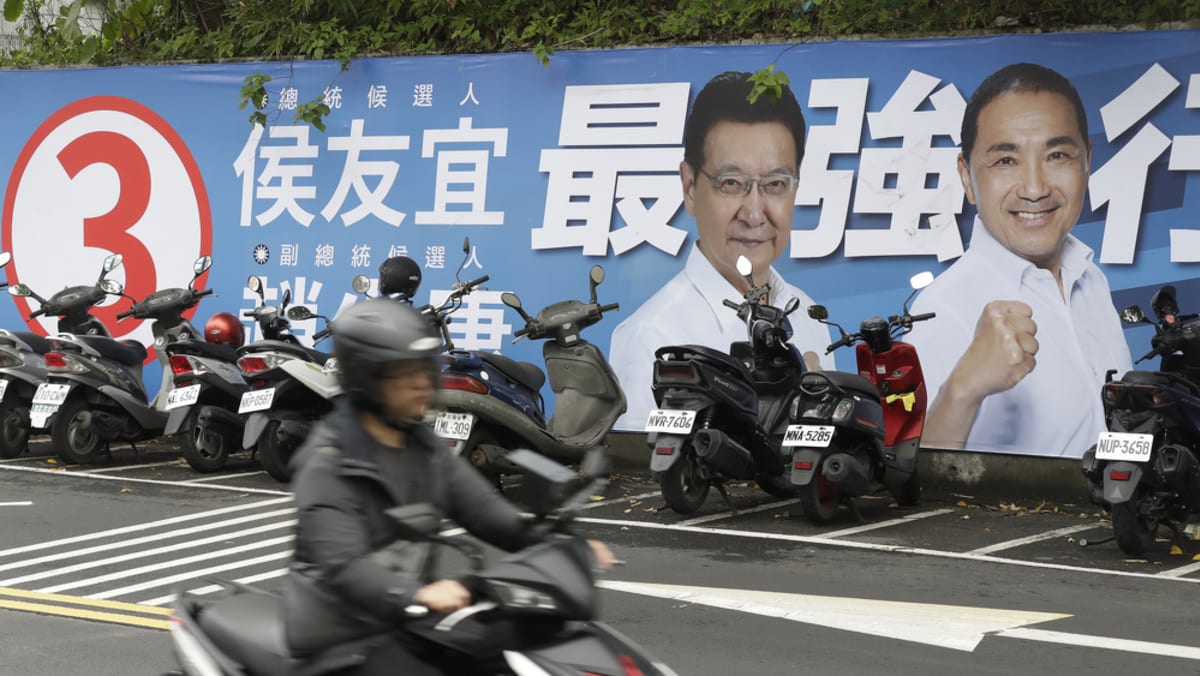
DIALOGUE WITH BEIJING
The DPP’s presidential candidate William Lai has said he is open to dialogue with Beijing, but the possibility remains remote after he flatly rejected the 1992 consensus — the “one China” principle — which Beijing insists forms the basis of any engagement between both sides.
On the other hand, the Kuomintang and Taiwan People’s Party are keen to restart high-level talks and explore trade agreements with Beijing.
While there has been speculation about a possible easing of cross-strait relations if the pan-blue camp, which favours closer ties with China, wins the presidency, political science Professor Chang Chun-Hao from Tunghai University said there are other factors at play.
“Given the CCP’s (Chinese Communist Party) increasing consolidation of authoritarianism, it’s unlikely that the situation will completely change just because the blue camp wins. Therefore, I believe it’s crucial for Taiwan to stand firm on national stability regardless of the election outcome,” he said.
He noted that in recent years, Taiwan has received substantial support from the international community through its diplomatic approach.
“Especially in the past, cross-strait relations were purely between Taiwan and China. Now they have become an international issue. No matter which candidate wins the election, he must safeguard the island’s democratic values and (be more selective) with international allies,” he said.
ENSURING TAIWAN’S SECURITY
While China has stepped up military and diplomatic pressure on the DPP government for advocating the island’s independence, the chances of Chinese President Xi Jinping taking any action are “currently relatively low due to numerous internal challenges”, said Prof Chang.
“But entering his fourth term facing escalating internal issues, coupled with increased foreign involvement in Taiwan, he might be compelled to respond,” he noted.
Jail could endanger Thaksin’s life, say prison officials
Department of Corrections says decision to extend hospital stay based on medical advice
PUBLISHED : 11 Jan 2024 at 14:44

Convicted former prime minister Thaksin Shinawatra is seriously ill and must remain in Police General Hospital as a return to jail could endanger his life, according to the Department of Corrections.
In a long-awaited update, the department said on Thursday that it moved Thaksin to the hospital on Aug 23 because he needed continuous treatment and observation for many illnesses that required close monitoring.
The referral was based on safety because the Medical Correctional Hospital lacked equipment for his treatment, the department said.
The statement came a day before a planned visit to the hospital by a House committee seeking to verify Thaksin’s condition in response to growing public scepticism and official silence. It was not clear whether hospital authorities would let them go to the 14th floor where the patient is said to be staying.
The head of the Department of Corrections must approve any stay longer than 120 days by an inmate in a medical facility outside a prison hospital, and the minister of justice must acknowledge it. In Thaksin’s case, the 120-day deadline passed on Dec 21 without any news.
The statement said that officials at the Bangkok Remand Prison “recently” asked Police General Hospital about the condition of the 74-year-old inmate. The hospital replied that specialist doctors were treating him and he needed close care until his critical conditions could be resolved.
Sahakarn Phetnarin, the director-general of the Department of Corrections, on Monday extended Thaksin’s stay at the hospital. The statement did not say when the extension would end.
“If there is any complication or life-threatening symptom, treatment can be provided immediately,” it said.
The department said it complied with regulations on the treatment of inmates outside prison and respected inmates’ fundamental rights to privacy. Consequently, it could not publicise the personal data of patients without their consent.
A doctor told the House committee on police affairs recently that Thaksin was suffering from hypertension, narrowed blood vessels and hepatitis B. He has had two surgical procedures for undisclosed conditions since his admission to the hospital. Officials have declined to elaborate.
Opponents still plan to rally at Government House from Friday evening until Sunday to protest against Thaksin’s extended stay at the hospital.
Phichit Chaimongkol, leader of the Network of Students and People for Reform of Thailand, said many government officials had been jailed for being used as tools to help corrupt politicians. He did not elaborate.
Thaksin, 74, returned to Thailand on Aug 22 last year after 15 years of self-imposed exile to face punishment for corruption and abuse of authority while in office prior to 2006. He was sentenced that same day to eight years in prison, later reduced to one year under a royal pardon.
He could be eligible for parole on Feb 22, when he will have completed six months of his sentence.
He was sent from Bangkok Remand Prison to the Police General Hospital in the early hours of Aug 23 for health reasons and has been there ever since.



